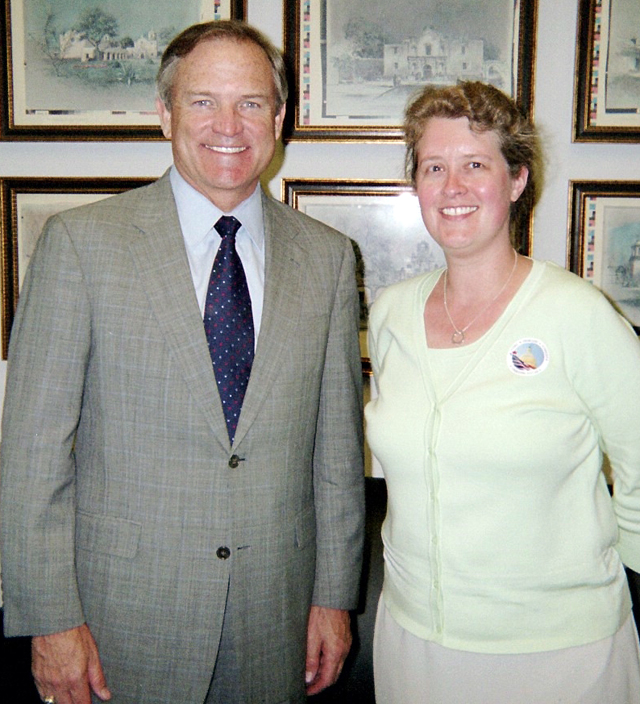Baylor Professor Speaks To Congress About Investing More In Research and Development

With more than half of all recent industrial innovation in the United States attributed to advances pioneered through scientific research, publicly-funded research and development is vital to the foundation of today's scientific and technological progress.
That's the message Dr. Linda Olafsen, an associate professor of physics at Baylor University, took with her to Washington, D.C., May 1-2, to express to Congress the need for increased and balanced federal investment in research and development.
"The Internet, global environmental monitoring, lasers and liquid crystal displays are all examples of scientific and technological advances that can be traced back to federally funded science," Olafsen said. "Our country's leadership in this area is one of our greatest advantages for ensuring homeland security. It is also crucial for ensuring our economic well-being."
Olafsen, joined by approximately 30 members of the Materials Research Society and nearly 300 scientists, engineers and business leaders, made visits on Capitol Hill as part of the annual Congressional Visits Days, an event sponsored by the Science-Engineering-Technology Work Group.
While visiting Congressional offices of Sen. Kay Bailey Hutchison and Rep. Chet Edwards, Olafsen discussed the importance of the nation's broad portfolio of investments in science, engineering and technology to promoting national security, prosperity, and leadership in competitiveness and innovation. Perhaps more importantly, the group provided a constituent perspective on the local and national impact of these programs and their significance to Baylor and central Texas. Specifically, Olafsen spoke about the impact of basic research in materials and physical science on common items like cell phones and on the potential for future research to lead to clean energy alternatives to coal plants.
"We were very pleased that Representative Edwards took time out of his busy schedule to meet with us and discuss continued support of basic research in Federal R&D programs, such as the National Science Foundation, the Office of Science at the Department of Energy, and the National Institute of Standards and Technology," Olafsen said. "We hope that he will be instrumental in his role on the Appropriations committee to commit funds with the goal of doubling the NSF, DOE-Science, and NIST budgets over the next 10 years."
Other highlights of the two-day event included remarks by leading science administrators in the federal government, including Sharon Hays, associate director for the White House Office of Science and Technology Policy; Chuck Atkins, chief of staff of the U.S. House Science and Technology Committee; and Kathryn Clay, professional staff for the U.S. Senate Committee on Energy and Natural Resources.
A Congressional reception was held to present the George E. Brown Jr. Science, Engineering and Technology Leadership Award to Speaker of the House Nancy Pelosi of California and former Sen. Lamar Alexander of Tennessee. At a breakfast meeting, Rep. Michael Honda of California, a member of the House Science and Technology Committee, offered his support for Federal science and technology programs.
The Science-Engineering-Technology Work Group is an information network comprising more than 40 professional, scientific and engineering societies, higher education associations, industry and institutions of higher learning. The Work Group is concerned about the future vitality of the U.S. science, mathematics and engineering enterprise.
For more information, contact Dr. Olafsen at (254) 710-2541.